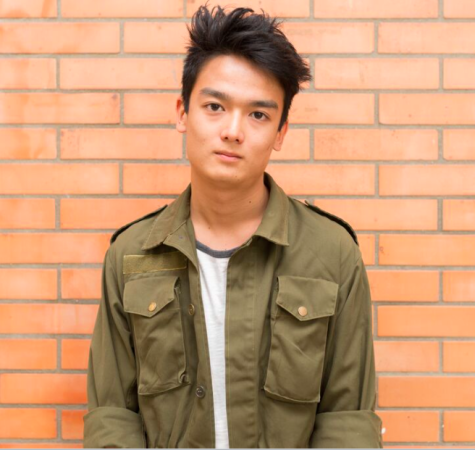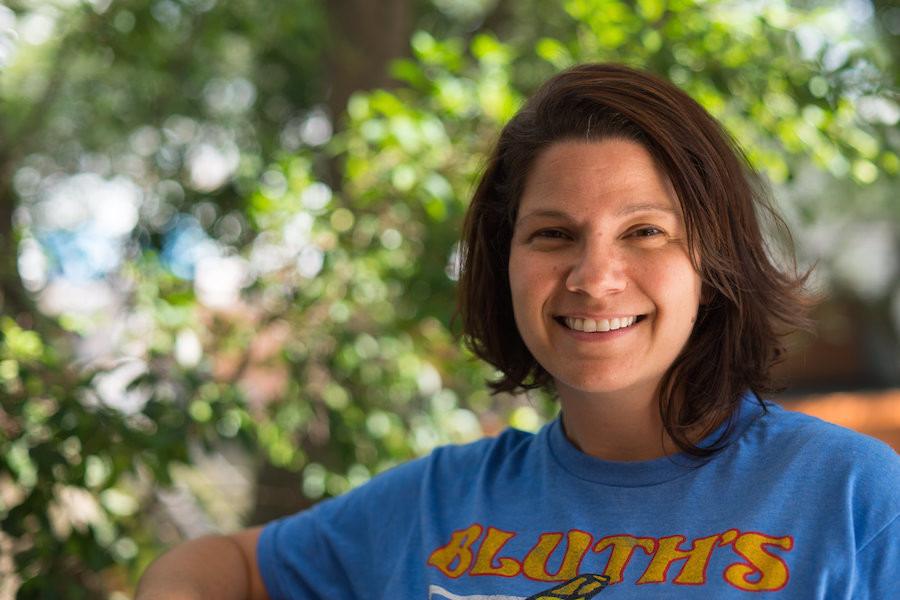An inside view of Graded’s poetry recitation contest
“You sit in a chair, touched by nothing, feeling,” recited Sammi Gistren, her voice echoing the words of Mark Strand, her lines hanging in the air in front of an audience of 400 Graded students, teachers, and parents. Besides worrying about college basketball, IB mock exams, and the infamous “Graded March Madness,” last month students recited poems in their English classes in hopes of advancing to the final performance. I asked English teacher Ms. Baumgarten some questions about the whole process as well as her thoughts on the event. The following is an edited version of our conversation.
Yoji Watanabe: To begin, what did you think of the performances overall this year? This isn’t limited to those from the semifinalists or finalists.
Ms. Baumgarten: Teachers in the English department were impressed. It was a really tough discussion when narrowing down the semifinalists to the finalists. They were amazing! From what I saw, the overall quality of the recitations improved since last year.
YW: What do you think is more important, the poem choice or the recitation? For example, would you rather listen to a Kipling poem or something more out of the ordinary?
BA: Basing my answer off of core-value comments, I think the kid has to be interested in the poem. The better performances were from the kids who genuinely had an interest in the poem itself. It’s great if they can do Kipling amazingly well, but I think the students most of the time go with the safe choices, which affects the performance. Two kids recited “Do Not Go Gentle into that Good Night” in the semifinals, and they were both fabulous, but I think they both really felt the poem. In the end, the poem choice proves to be really important in the sense that students must truly connect with their poem.
YW: For the kids who can’t find a good poem, where can they start? I know I was lost initially.
BA: Well, I’m going to be a teacher and turn the tables. How did you find a poem you liked?
YW: I just went on poetry.com and read poems until I found an author whose work I was interested in, and from there I just read over his other poems.
BA: Well, it sounds like that’s the answer! What would your question be for me, specifically?
YW: Where would you start?
BA: I think one thing we can do is coach students to be more open-minded about poetry, and to do kind of what you did, which is we give you some of these resources, and you just read. Look at the titles, look at what sounds interesting to you. I think we just need to be really encouraging of the students to go with their instincts and what looks interesting to them and not just go with whatever poem seems easy.
YW: Some would argue that angry poems that include yelling in the recitation sound better than more sad or monotone ones do. What are your thoughts on that?
BA: I know where this is coming from. I think that they are correct that the first listen of an angry poem can move us, but I think that the best recitations find a balance of emotions throughout the poem. I loved Michael Kern’s recitation because he sped up and slowed down, and I think the best ones have both emotions. Audience members who aren’t familiar with poetry recitations think that the angry poems sound the best, but they don’t really understand the poems’ meaning. I think the best recitations are the ones that go back and forth and back and forth. The first time I heard Luiz de Campos’ poem, I thought it was amazing, and I still think it was an amazing performance. After a while I definitely think there is something to be said about nuanced, slower poems. To me, the best poems are the ones that have both. Not that I think that poems like Luiz’s aren’t amazing. He is an amazing reciter. He does really well. But at the same time there is definitely power in finding balance between the two emotions.
YW: Sammi Gistren won this year with “In Celebration” by Mark Strand. What were your thoughts? Putting the judges’ decision aside, what made her stand out among other amazing front-runners?
BA: It goes with what we were just talking about. What made Sammi stand out was that she really seemed to understand the poem and made sure that her choices in technique reflected its meaning; she didn’t rely on over-emoting. Sammi took a softer approach, and it allowed people to listen to what she was saying and engage with the poem.
YW: So you’re leaving Graded. Would you bring the mandatory recitation model, where students have to recite in class, to your new school?
BA: Would I bring the mandatory model? That’s a great question. I will admit that I was skeptical; I had my doubts about this process when I first came to Graded. But I had a lot of kids that in their core value reflections said they were proud that they did the recitation, so I think I would bring it in a mandatory way. I would try to incorporate it a little more into the curriculum, so that if we did it as a formative, it would lead to something else. The next school I go to, I will definitely share this experience and figure out a way to make it work. I see so many students grow in their confidence and in their skill level through this act even though some of them don’t like it. As a teacher, I see growth in analysis and understanding of poetry that I think is really valuable.
YW: Any closing remarks?
BA: I thought that the performances were truly great this year from all the semifinalists. For the finalists, it was an extremely tough decision for the judges. I didn’t weigh in on the judging, but it was really tough for them to figure out the winners. I just kind of helped move them along because we were running out of time, but it was… it was tough. I think if they could have given out five or six prizes, they would have.

In his second year in the Talon, Yoji managed to rise to the top of the Entertainment ranks, where he was once a lowly reporter. Yoji now plans to rule...

Gabriel Civita is the Image Master for The Talon after being the photographer last year. Basically, he’s still a photographer, but with a fancier title....









